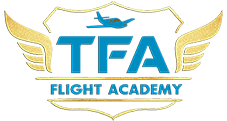FAA Remote Pilot License: Mastering Small UAS Operations under Part 107
Welcome to the FAA Remote Pilot License: Small Unmanned Aircraft Systems (Part 107) course!
This course equips you with the knowledge and operational requirements to safely fly small UAS (commonly known as drones) within the National Airspace System (NAS) under Title 14 of the Code of Federal Regulations (14 CFR) Part 107.
Who is this Course For?
This course caters to two distinct groups:
· Part 61 Certificate Holders: If you hold a current Part 61 pilot certificate with a valid flight review (as outlined in 14 CFR Part 61.56), successful completion of this online course fulfills the recurrent training requirement to maintain your currency as a Part 107 remote pilot with a small UAS rating.
· Self-Study Individuals: Anyone interested in learning about Part 107 regulations and safe drone operation can utilize this course as a valuable self-study resource. However, please note that individuals without a Part 61 pilot certificate or current flight review will need to take the FAA Unmanned Aircraft General (UAG) Knowledge Test at an FAA-approved Knowledge Testing Center to maintain currency of their Part 107 certificate.
Course Structure:
This course is designed for easy navigation and covers all the essential aspects of Part 107 operations:
· Introduction: Provides a comprehensive overview of Part 107 regulations, the role of remote pilots, and the importance of safe drone flight.
· Procedures: Delves into the operational procedures mandated by Part 107, including airspace restrictions, pre-flight requirements, flight limitations, and emergency procedures.
· Major Provisions: Explores key aspects of Part 107 regulations in detail, such as registration requirements, recordkeeping, and operational limitations based on weight and purpose.
· Preflight Inspection Checklist: Provides a downloadable checklist to guide you through a thorough pre-flight inspection of your drone, ensuring safe and reliable operation.
· Downloadable Reference Materials: Offers access to downloadable resources such as the official FAA Part 107 regulations and relevant safety guidance documents.
· Course Review: Concludes with a comprehensive review module to solidify your understanding of the key concepts covered in the course.
By completing this course, you will gain a thorough understanding of the following:
· Part 107 Regulatory Framework: Master the regulations governing small UAS operations within the NAS.
· Safe Drone Flight Practices: Learn essential procedures for safe and responsible drone flight.
· Maintaining Currency: Understand the requirements for maintaining your Part 107 remote pilot certificate currency.
· Preflight Inspection Procedures: Develop a systematic approach to pre-flight drone inspections.
· Safety Considerations: Prioritize safety throughout all aspects of drone operation.
Take Flight with Confidence
Whether you're a Part 61 pilot seeking to maintain your Part 107 currency or an aspiring drone enthusiast, this course equips you with the knowledge and tools to operate your small UAS in compliance with FAA regulations.
Additional Considerations:
· Airspace Authorizations: This course covers the general operational requirements of Part 107. However, it's important to note that depending on the location and purpose of your drone flight, you may need to obtain an airspace authorization from the FAA before operating. We recommend familiarizing yourself with the FAA's airspace authorization procedures through the official FAA website https://www.faa.gov/uas/commercial_operators/become_a_drone_pilot.
· Registration Requirements: All drones weighing between 0.55 pounds and 55 pounds must be registered with the FAA. The registration process is quick and easy, and can be completed online through the FAA DroneZone website https://faadronezone-access.faa.gov/.
· Insurance: While not mandatory by the FAA, drone insurance is highly recommended. Drone insurance can provide financial protection in case of accidental damage to your drone or property damage caused by your drone.
· Staying Current: Even after completing this course, staying informed about updates to Part 107 regulations is crucial. The FAA periodically revises regulations, and it's your responsibility to stay current with any changes. We recommend checking the FAA website for updates and subscribing to relevant industry publications.
Benefits of Taking this Course:
· Convenience: Learn at your own pace with this flexible online course format.
· Comprehensiveness: Gain a thorough understanding of Part 107 regulations and safe drone operation.
· Cost-Effective: An affordable solution for maintaining your Part 107 currency or acquiring foundational drone knowledge.
· Nationally Recognized: This course aligns with the FAA's established guidelines for Part 107 remote pilot training.
· Preparation for the UAG Knowledge Test: Individuals who need to take the FAA's UAG Knowledge Test will find this course valuable preparation material.
Get Started Today!
Enroll in the FAA Remote Pilot License: Small Unmanned Aircraft Systems (Part 107) course and unlock the exciting world of safe and responsible drone flight!
This course is the first step towards a rewarding journey as a skilled and knowledgeable drone pilot. We look forward to guiding you on your path to success!
